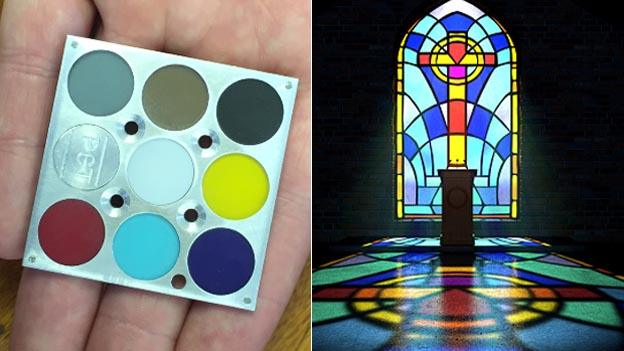Aberystwyth scientists hoping to find life on Mars
- Published
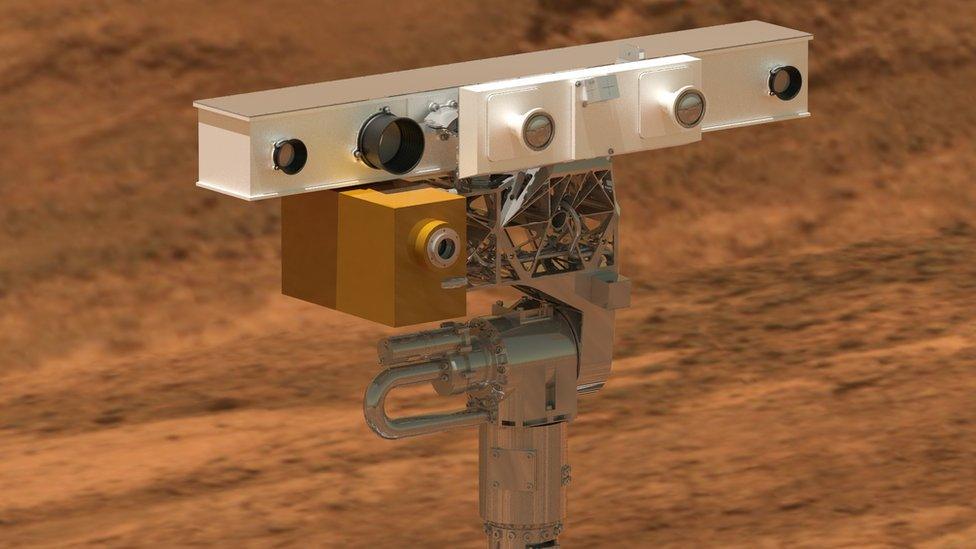
A Welsh scientist working on sending a robot with a selfie stick into space believes it will find life on Mars.
In the next two days Europe's research ministers will decide whether to push ahead with the mission to send the rover to the Martian surface in 2021.
A team at Aberystwyth University has developed a special camera on top of the ExoMars rover.
Dr Matthew Gun hopes it will capture life on the Red Planet by sampling soil drilled from under the surface.
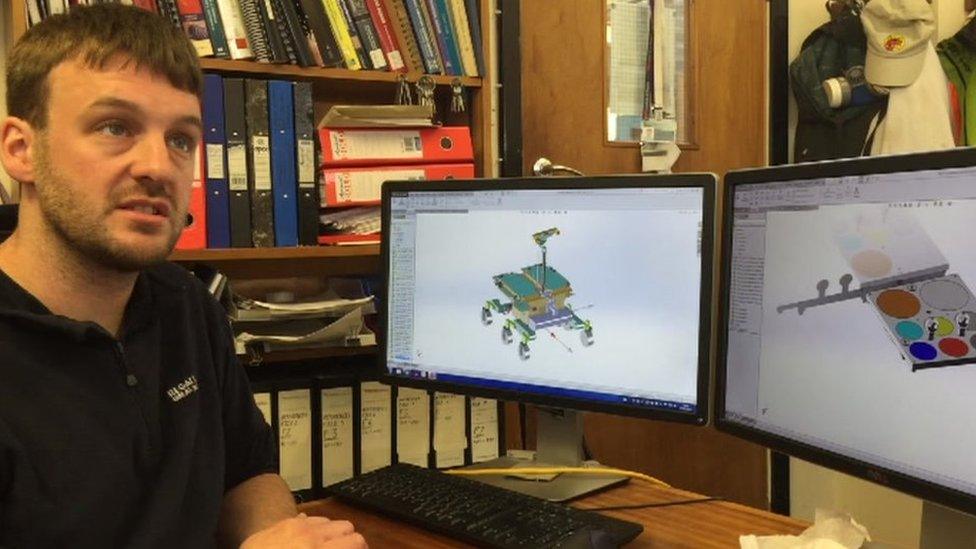
Dr Matthew Gunn has spent years with colleagues developing the ideal colour calibration checker for the Mars rover
The team - previously overseen by Prof Dave Barnes, who died in 2014, external - is developing calibration equipment for the panoramic camera on the rover.
Similar to a chart of "stable" colours used by photographers at the start of any session, the kit ensures the shades being captured in images of the Martian surface will be accurate.
A recent study found the Beagle 2, the failed British mission in 2003, did not crash-land and came "excruciatingly close" to succeeding.
The research fellow said it would be exciting but "deeply frustrating" if the Beagle 2 had been operating for all this time but had been unable to send the data back to Earth.
He said the team were learning from previous mistakes and are hopeful they will find life on the Martian surface when the mission starts in 2021.
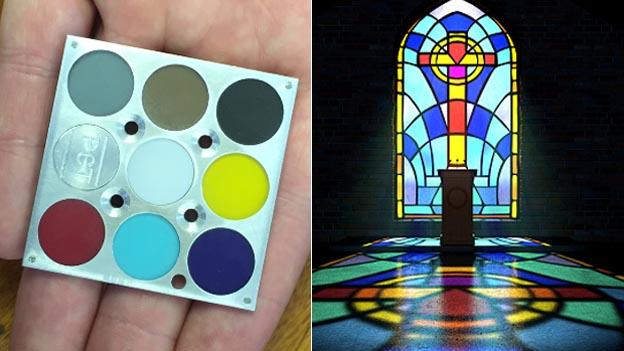
A scaled-down version of the calibration tile, which is inspired by a stained-glass church window
"I never thought I would be doing anything like this when I was in school," he said, adding the team was continuing the work in Prof Barnes memory.
"It has evolved quite quickly over the last few years, we learnt a lot from the Beagle 2."
But Dr Gunn said sending members of the public into space was still some way off.
"There are a lot of people trying to do things like that - there have been technological advances but it would need a lot more before people can go out there," he said.
"I can see it happening one day."
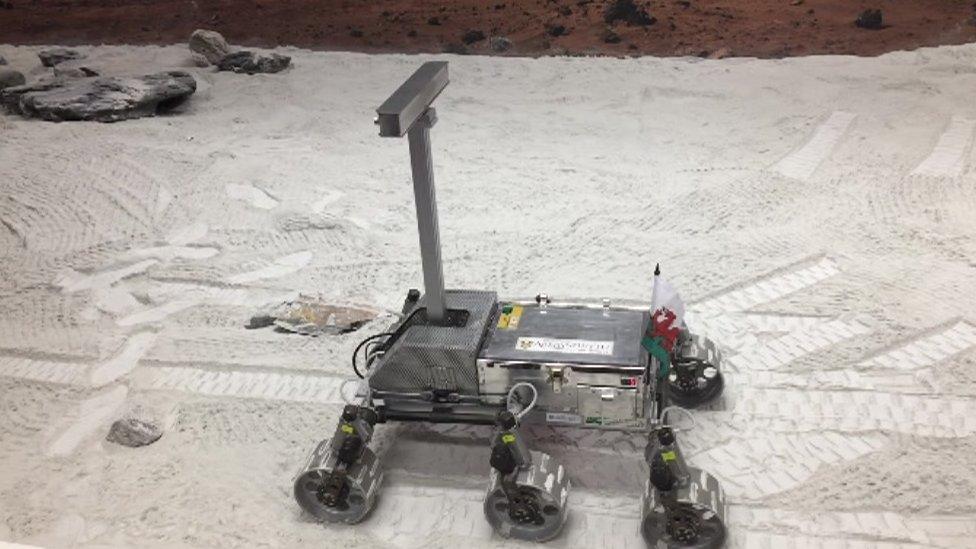
The university's half-sized ExoMars Rover, Blodwen, tests innovations and software the team has devised
- Published11 November 2016
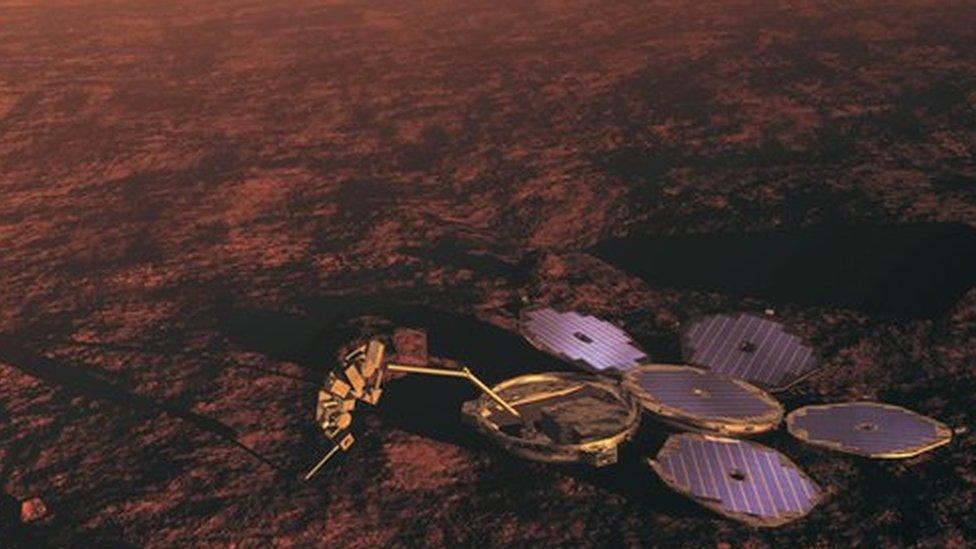
- Published16 January 2015
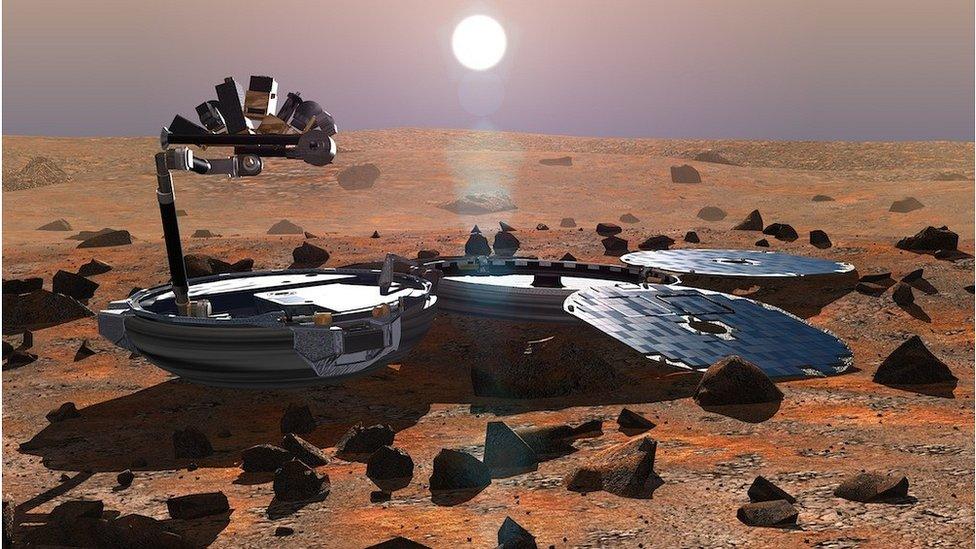
- Published26 October 2015
